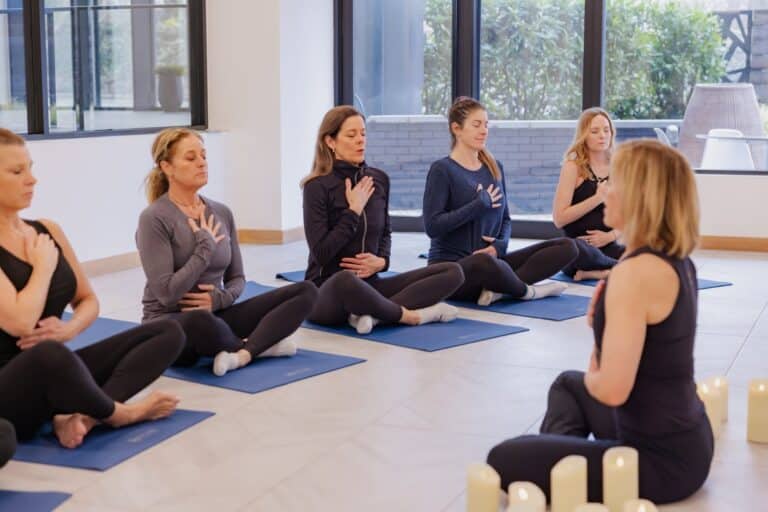Watching your child play is a heartwarming experience. Whether she’s talking to her stuffed animals, building a skyscraper with blocks or enjoying a game of tag with pals, it’s undeniably sweet. So sweet, in fact, that’s it’s easy to assume children’s play is all fun and games.
PLAY’S MANY BENEFITS
“Play is a way for children to practice and master skills as they develop,” explains Steven Dickstein, MD, a child and adolescent psychiatrist at the Behavioral Health Center at Westchester Medical Center in Valhalla, NY. “The great thing about play is they can try things out in a setting where it is okay to make mistakes, and then try again. Play is also a way to learn how to manipulate objects and try out adult roles—like playing with a pretend kitchen or taking care of a baby doll.”
Katy Noble, MD, founder and managing partner at Sound Beach Pediatrics in Stamford, CT, agrees. “Play is extremely important,” she says. “Play promotes the social and emotional development of children, their cognitive skills, and their ability to self-regulate. It also supports the development of executive functioning skills (one’s ability to plan, manage and complete tasks), which are so valuable later on in life.”
She cites her experience and research by the American Academy of Pediatrics (AAP). They issued a report in 2018 titled, The Power of Play, urging pediatricians to advocate for more playtime for their young patients. In addition to the benefits Dr. Dickstein and Dr. Noble mentioned, the report points out that play helps children counteract stress and expand their horizons. “Play is not just about having fun but about taking risks, experimenting and testing boundaries,” it asserts.
SCREENS, PACKED SCHEDULES AND OTHER DISTRACTIONS
Despite the proven importance of play, children are playing less than they used to. The reasons are multi-factorial notes Dr. Noble. “There’s less time for recess in school. There is a societal movement towards highly scheduled kids’ activities. And, the heavy influence of electronic media leaves a lot less time for children to experience downtime and draw upon their own creativity to play.”
Screen time, especially, may be cutting into playtime of late. The AAP’s report states that the average preschooler spends 4.5 hours a day watching television—hours that could otherwise be spent actively playing and moving around (which, in turn, can help prevent childhood obesity). By contrast, the AAP recommends that toddlers and young children spend no more than an hour a day watching quality educational programming. Most parents in our community are aware they should not let their child sit in front of a screen all day, but may not realize how much time they are actually spending on iPads, phones and computers. Says Dr. Noble, “We all need to think more deeply about how we are monitoring children in the electronic sphere.” A recent study by toy company Melissa and Doug and Gallup found that children ages 2 to 10 now spend more time on devices—18.6 hours per week—than on free play either indoors (14.6 hours) or outdoors (10.6 hours).
Add up all the time stealers, from TV and computers to things like organized extracurricular classes, and the resulting deficit of playtime can harm children. “Lack of fun or safe stress reduction is not good,” warns Dr. Dickstein. “Being too sedentary is not good for either physical or mental health. Lots of studies demonstrate the benefits of physical activity at every age.” Kids who don’t play much also miss out on a chance to develop self-determination, Dr. Noble adds. “Over time they lose the ability to think about what they want to do next. They’re waiting for external cues,” she explains.
TIME TO PLAY

Creating opportunities for free play in today’s world isn’t always easy, but it can be done. While there are no set guidelines for how much play a child should enjoy, these steps can all increase playtime:
Be a role model.“Sometimes we accidentally model not-so-great habits by focusing on work after hours and being glued to our own smart phones or tablets,” Dr. Dickstein notes. Get off your devices and let your child see you pursuing active and fun leisure time activities, such as hobbies.
Set limits on screen time. Avoid digital device use altogether except for video chatting for children younger than 2, the AAP recommends. For children ages 2 to 5, stick to AAP guidelines of an hour max per day of quality educational shows. For older kids, use your best judgment to set limits, and and turn off devices whenever possible. “What I say to my patients is that if time on the device is preventing them from seeing friends, spending time with family, playing outside, doing their homework, then maybe it’s too much,” says Dr. Noble.
Redefine your idea of success. “There is continued pressure on academic performance and making sure that children have enriching activities, which can fill up a schedule quickly,” says Dr. Dickstein. Rather than signing up your child for yet another after-school class or sport, leave some unstructured playtime, and view it as an opportunity for him to learn the skills he’ll need to excel. With an increase in free play, “studies have definitely shown improvement in math skills,” says Dr. Noble. And, of course, it will help your child’s executive functioning. “This is super-critical as children get older and manage increasing academic and social demands,” Dr. Noble shares.
Take it outside. “Outdoor play has the advantage of, hopefully, fresh air and some sunshine,” says Dr. Dickstein. “It allows for bigger games and more room to explore.” Make regular visits to your local park, he recommends: “you can make new friends that you would not make in your own living room. There are more challenges to navigate at the park, and that’s not a bad thing. You can probably get more physical activity and get your heart pumping more easily.”
Make play dates with friends, but don’t direct the play. Let them decide for themselves what they want to do. It will sharpen kids’ social skills, as they learn the arts of negotiation and compromise.
Book your own play date with your child. Schedule times when you can enjoy a game or a session of pretend. “Nothing takes the place of rolling up your sleeves and engaging with your child,” says Dr. Noble.





